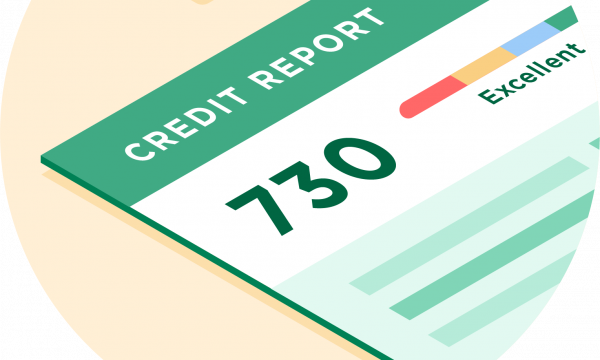How to Dispute Credit Report Errors
Dispute credit report errors to get mistakes or outdated information off your credit history, which can help your score.

Many, or all, of the products featured on this page are from our advertising partners who compensate us when you take certain actions on our website or click to take an action on their website. However, this does not influence our evaluations. Our opinions are our own. Here is a list of our partners and here's how we make money.
Errors on your credit reports can cause your credit scores to be lower than they should be, which can affect your chances of getting a loan or credit card and how much interest you pay.
Disputing credit report errors and getting those negative items removed can be a quick route to a better score.
Incorrect information on credit reports was the top complaint made to the Consumer Financial Protection Bureau, according to the CFPB's database .
Here's how to dispute credit report errors and have them removed in four steps.
Stress less. Track more.
See the full picture: savings, debt, investments and more. Smarter money moves start in our app.
1. Check all three credit reports for errors
You’re entitled to free weekly credit reports from the three major credit reporting bureaus: Experian, Equifax and TransUnion. Request them by using AnnualCreditReport.com.
There may be small differences among your reports, because some creditors don’t report your account activity to all three bureaus. But if negative information has popped up on one report, it’s wise to see whether it’s also on the other two.
There is no cost to dispute credit report errors, and you can dispute as many items as you like. Filing a dispute does not hurt your credit score, but the result of the dispute may have an effect on your score.
Which credit report errors should you dispute?
The most concerning errors are those that could hurt your scores or suggest identity theft. Those include:
- Wrong account status (such as a payment mistakenly reported late when you paid on time).
- Negative information that's too old to be reported; most derogatory marks on your credit must be removed after seven years.
- An ex-spouse incorrectly listed on a loan or credit card.
- Wrong account numbers or accounts that aren’t yours.
- Inaccurate credit limits or loan balances.
- Accounts you don't recognize.
- Addresses where you've never lived.
If you suspect your identity has been stolen, follow the steps to report identity theft.
Which credit report errors aren't worth disputing?
Small errors that don’t affect your score — like a misspelled former employer name or an outdated phone number — don’t hurt anyone’s assessment of your creditworthiness and aren't worth disputing.
And sometimes a negative mark might surprise you but is not an error. If it’s accurate, don't use the dispute process. Instead, try to resolve the problem directly with the creditor. For example, if you accidentally missed a payment, contact the creditor, arrange to pay up and ask if it will rescind the delinquency so it no longer appears on your reports.
The credit agencies are not obligated to investigate "frivolous" claims.
Get Credit Reports in Spanish
🤓 Nerdy Tip
Consejo NerdyUsted puede solicitar una copia de su informe crediticio (gratis y en español) de cada una de las tres principales agencias de crédito:
· TransUnion: Llame al 800-916-8800.
· Equifax: Visite el enlace o llame al 888-378-4329.
· Experian: Haga clic en el enlace o llame al 888-397-3742.
2. Gather materials to dispute errors
Your goal is to make it as easy and quick as possible for investigators to confirm that your complaint is valid. Depending on the error, the things you gather to support your case could include:
- Copies of credit card statements or loan documents
- Copies of bank statements
- Copies of birth or death certificates, or a divorce decree
- If you've reported identity theft, include a copy of your FTC complaint or police report.
Documentation to provide for your dispute
In addition to the above, you'll need to provide:
- Proof of identity
- Your Social Security number and date of birth
- A copy of government-issued identification (such as driver’s license or passport)
- Your current address and past addresses going back two years
- A copy of a utility bill or bank or insurance statement that includes your name and address
3. Dispute credit report errors
All three bureaus have an online dispute process, which is often the fastest way to fix a problem, or you can write a letter. You can also call the credit bureaus, but you may not be able to complete your dispute over the phone. Here's information for each bureau:
How to dispute Equifax credit report errors
- Use the Equifax online portal.
- Write to Equifax, P.O. Box 740256, Atlanta, GA 30374-0256.
- Call 866-349-5191 and follow the prompts to speak to an agent.
How to dispute Experian credit report errors
- Use the Experian online dispute form.
- Write to Experian National Consumer Assistance Center, P.O. Box 4500, Allen, TX 75013.
- Call 866-200-6020 to see if your dispute can be resolved by phone.
How to dispute TransUnion credit report errors
- Use the TransUnion dispute online help page.
- Write to TransUnion LLC, Consumer Dispute Center, P.O. Box 2000, Chester, PA 19016.
- Call 800-916-8800 and have a copy of your TransUnion credit report handy; the representative will need the file number.
Stress less. Track more.
See the full picture: savings, debt, investments and more. Smarter money moves start in our app.
How to check with the data furnisher
When you file a dispute, the Federal Trade Commission suggests also informing the company that provided the data to the credit bureaus, such as a bank, lender or card issuer, in writing.
These sources of information are known as furnishers. Notifying the data furnisher may cause them to proactively stop reporting the inaccurate information to the credit bureau, although that's not guaranteed.
Send the letter to the company using the address it listed on your credit report. If there is no address listed, ask the company for one.
The FTC notes on its website: “If the business keeps reporting the disputed information to a credit bureau, it must let the credit bureau know about your dispute and the credit bureau must include a notice that you are disputing it as inaccurate or incomplete. If the business finds the information you dispute to be inaccurate or incomplete, the business must tell the credit bureau to update or delete that information from your report.”
4. Review the response to your dispute
The credit bureaus must investigate your dispute and then tell you the outcome in writing. Under most circumstances, the bureaus have to respond within 30 days.
In some cases, the window widens to 45 days to account for the submission of additional information or submitting a dispute after getting a copy of your credit report using AnnualCreditReport.com.
If the credit bureau agrees it's an error
The bureau will remove the item and send you a new copy of your credit report. Review the new report to make sure it's right.
You can request that the bureau communicate the correction to anyone who received your report in the past six months. If anyone requested your credit for employment purposes in the last two years, you can ask for a corrected copy to be sent to them.
If the credit bureau disagrees
The bureau — or the furnisher — may disagree that the item is a mistake and refuse to remove it.
If you’re sure the item on your report is incorrect, it’s time to take it to the Consumer Financial Protection Bureau. Explain what you’re disputing and provide copies of your proof. The CFPB will look into it, and you can follow progress with the email updates it sends or by logging in to the website.
Frequently Asked Questions
How do you dispute something on your credit report?
You can dispute credit report errors by gathering documentation about the error and sending a letter to the credit bureau that created the report. All three credit bureaus, Equifax, Experian and TransUnion, have an online dispute process, which is often the fastest way to fix a problem.
How do I dispute all three credit bureaus?
All three bureaus have an online dispute process, which is often the fastest way to fix a problem, or you can write a letter. You can also call, but you may not be able to complete your dispute over the phone.
What do the codes on my credit report mean?
Sometimes your credit report will include reason codes that tell you about your score, especially if you were recently declined when applying for credit. An example might be 87: Unpaid collections.
The codes are unique for the two major scoring companies, FICO and VantageScore. VantageScore allows you to search for codes, their meaning and tips to build your score using www.ReasonCode.org, while there is no similar resource for FICO.
Article sources
NerdWallet writers are subject matter authorities who use primary,
trustworthy sources to inform their work, including peer-reviewed
studies, government websites, academic research and interviews with
industry experts. All content is fact-checked for accuracy, timeliness
and relevance. You can learn more about NerdWallet's high
standards for journalism by reading our
editorial guidelines.
- 1. Consumer Financial Protection Bureau. Complaints by date received by the CFPB. Accessed Dec 16, 2025.
On this page
Related articles








